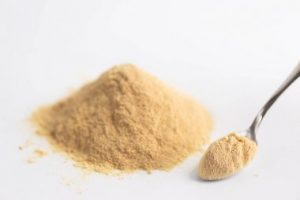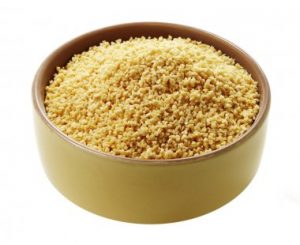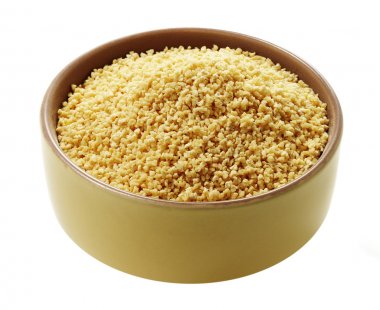Lecithin has become a popular nutritional element these days, such that you will find it in most dietary products. Just flip over any of your food or hair products labels, and you will see lecithin as part of the ingredients.
With that said, there are many types of lecithin that people use in food and hair products. But the most talked about, and utilized types are sunflower lecithin and soy lecithin. So, which is better? What’s the difference between these two? Sunflower lecithin vs. soy lecithin has turned out to be a buzzing rivalry in recent days.
If you are a lecithin user, you probably have also asked yourself what’s the difference between the two. So, in this article, we examine both of these types to find out the differences between them.
What is Sunflower Lecithin?

Sunflower lecithin is the type derived from sunflowers. The fatty substance extracted from sunflowers is what we refer to as sunflower lecithin. It contains a group of phospholipids that are vital for good health.
Sunflower lecithin seems to be more popular than soy lecithin due to some reasons—the first reason being that the extraction of sunflower lecithin is easier than that of soy lecithin. Sunflower lecithin also has a weaker smell and a neutral taste.
This type of lecithin is extracted through the method of cold pressing that does not require any chemicals. This means that sunflower lecithin is purely natural from the time of extraction. It also contains both antioxidants and compounds that are important for our health. For instance, the compounds in it help our bodies reduce the chances of contracting diseases.
The American Oil Chemists Society journal published a study stating that sunflowers have a rich source of phosphatidylcholine and other essential fatty acids. Both of these compounds work efficiently to protect our body’s cell membrane.
What is Soy Lecithin?

Soy lecithin is an extract from soybeans that involves the use of chemicals such as Hexane. Many chemicals are involved in the process of extracting lecithin from soybeans. For example, the crude soy goes through degumming, then later it is separated from the oil and finally dried and bleached with hydrogen peroxide.
It is this process that makes most people believe that soy lecithin can be harmful to human consumption. Soy lecithin is, however, used in most of the processed goods we see on our shelves. For instance, you can find it in dietary supplements, some types of medicine, bread, fragrant tea bags, and dairy products. This shows that soy lecithin is the most widely used type of lecithin; you could also be consuming soy lecithin with or without noticing it.
Soy lecithin is mostly used in these processed foods as a stabilizer to prolong a product’s life on the shelf. However, the good news is that although it is widely used in the processed foods we take, it is still used in very minimal amounts.
Moreover, since most people are highly allergic to soy, most allergens are removed while manufacturing.
Similarities of Soy Lecithin and Sunflower Lecithin
Although the two have significant differences, there are also similarities with them; below are some similarities of soy and sunflower lecithin:
- Both can extend the shelf life of products.
- Both are used as emulsifiers.
- One can take them as supplements.
- They can help lower cholesterol levels.
- They are both used in cosmetics to make the skin smoother.
- They can both enhance digestive health.
- Both have phospholipids that help to improve brain health.
These differences are the major reasons manufacturers still use these two types of lecithin in food and hair products. Many food processing and hair processing companies can use any kind of lecithin for manufacturing. For this reason, there is a range of companies that manufacture lecithin in bulk where food and hair companies source their lecithin. Amid these lecithin manufacturers, there are both genuine and fraudulent lecithin manufacturers. So, it is important to always strive to source genuine soy lecithin and sunflower lecithin from high-quality sources.
Differences between Soy Lecithin and Sunflower Lecithin
Although similar in a few ways, both of these have significant differences. That is why you will hear many nutrition fanatics talking about the differences between them and battling which type of lecithin is better.
The main difference that sets so much controversy between them is their extraction processes. While the sunflower lecithin extraction process is all-natural, the soy lecithin extraction process contains chemicals. For example, as mentioned earlier in this post, soy lecithin uses hydrogen peroxide to bleach lecithin in the near-final stage.
Soy lecithin is considered healthier than sunflower lecithin. One reason for this is because while soybeans are genetically modified, sunflower is a natural plant. Therefore, soybeans are not as natural as sunflower lecithin.
Additionally, the extraction of these types of lecithin also proves that sunflower lecithin is healthier than soy lecithin. The reason for this is that soy lecithin extraction involves chemicals such as Hexane and acetone. The extraction of sunflower lecithin uses a cold-pressing method that does not include any chemicals, thus making sunflower lecithin healthier than soy lecithin.
Sunflower and soy lecithin also differ in terms of choline concentration. Sunflower lecithin is considered to have higher amounts of choline than soy lecithin. Choline plays a big role in the body’s physiological processes. Lack of Choline in the body may cause hormonal dysfunctions in the body for anyone. Therefore, it is safe to say that sunflower lecithin can help curb Choline deficiency in the body.
Soy lecithin is also said to be highly allergic as compared to sunflower lecithin. This is because many people are allergic to soybeans. Although the allergens are first removed from soy lecithin, some people still have allergic reactions from using soy lecithin. Sunflower lecithin, on the other hand, is considered to be safe in terms of allergies since not many are sunflower allergic.
The Bottom Line
Lecithin is an essential ingredient in both food and hair products, and as seen in the post above, both have their advantages. While many may consider sunflower lecithin as healthier compared to soy lecithin, the latter is still widely used because of the benefits it offers. So, in conclusion, both soy lecithin and sunflower lecithin have their advantages.








